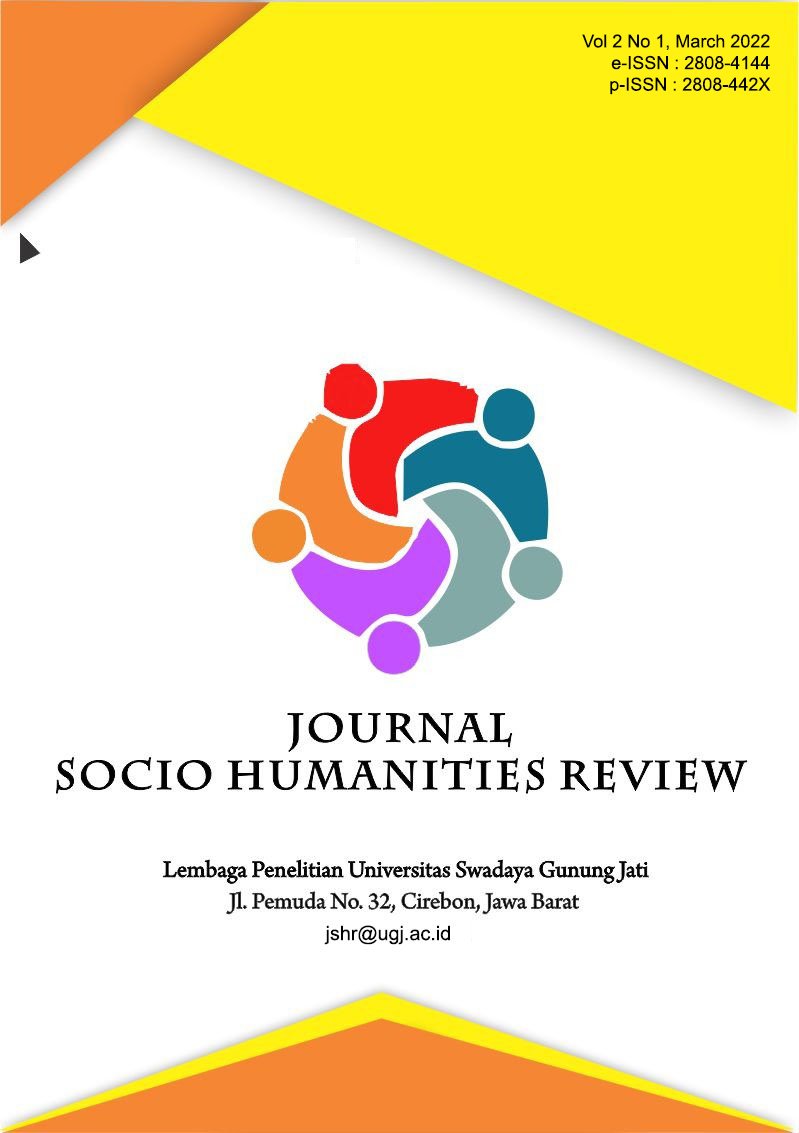The Effectiveness of Using The Application of Pegadaian Digital Service to Easy Customer Transaction at Pegadaian Cirebon Branch
DOI:
https://doi.org/10.33603/jshr.v2i1.6829Keywords:
Effectiveness, Pawnshop Application, Digital ServiceAbstract
The Pegadaian Digital Service application is a Pegadaian digital service in the form of a mobile-based application that can provide Pegadaian product services to make it easier for customers to make transactions anytime and anywhere. However, there are still many customers who carry out conventional transactions. This is the background for researchers to choose the title "Effectiveness of Using the Pawnshop Digital Service Application in Making Transactions Easier for Customers at Pawnshops Cirebon Branch." The purpose of this study is to determine the effectiveness of users transacting through the Pegadaian Digital Service application. This research uses descriptive qualitative method. The researcher used one key informant and four supporting informants. This study uses the theory of effectiveness measures by Campbell J.P. (1989:121) in Starawaji (2009) to be a guide in research. The results of the study can be concluded that judging from the success of the program, the success of the target, satisfaction with the program, the level of input and output, the achievement of overall goals is not optimal. And the data collection used by the researcher is a literature study and using field studies, namely observations and interviews.References
IBISA. 2010. Evaluasi Paket Sistem Aplikasi, Sistem Aplikasi Dan Auditing Sistem Aplikasi Bagi Perusahaan. Yogyakarta : Andi
Fajarianto, O., Jubaedah, S., & Erawati, D. (2021). Penerapan Digital Marketing dalam Mendukung Kegiatan Pemasaran Pada Usaha Taniku Cirebon. 4(1), 68–74.
Fajarianto, O., Muslim, S., & Ibrahim, N. (2020). Development of hyper content learning model for character education in elementary school children. International Journal of Psychosocial Rehabilitation. https://doi.org/10.37200/IJPR/V24I7/PR270830
Herlina Usman, Nidya Chandra Muji Utami, & Otto Fajarianto. (2019). Model Bahan Ajar Bahasa Inggris Untuk SD Berbasis Pendekatan Kontekstual. JTP - Jurnal Teknologi Pendidikan. https://doi.org/10.21009/jtp.v21i3.11392
Moleong, Lexy. 2016. Metodologi Penelitian Kualitatif. Bandung:Remaja Rosdakarya.
Mutiarin, Dyah. 2014. Manajemen Birokrasi dan Kebijakan, Yogyakarta.
Priansa, Donni Juni dan Agus Garnida, 2013. Manajemen Perkantoran Efektif, Efesien dan Profesional. Bandung : Alfabeta.
Rahayu, amy Y.S dan Vishu Juwono, 2019. Birokrasi & Governance Teori, Konsep dan Aplikasinya. Depok: PT RajaGrafindo.
Steers, M, Richard. 2020. Efektivitas Organisasi. Jakarta Pusat:Erlangga.
Sugiyono, Cetakan ke-23 2016. Metode Penelitian Kuantitatif, Kualitatif, dan R&D. Bandung: CV. Alfabeta.
Undang-Undang Republik Indonesia Nomor 25 Tahun 2004 tentang Sistem Perencanaan Pembangunan Nasional.
Yolanda, N., Mudasir, & Fajarianto, O. (2021). JURIDICAL ANALYSIS OF CURRENCY AND CITIZENSHIP STATUS OF CHILDREN ON DIVORCE IN MIXED MARRIAGE. Review of International Geographical Education Online, 11(10).
Downloads
Published
Issue
Section
License
Authors who publish with this journal agree to the following terms:
- Authors retain copyright and grant the journal right of first publication with the work simultaneously licensed under a Creative Commons Attribution License that allows others to share the work with an acknowledgement of the work's authorship and initial publication in this journal.
- Authors are able to enter into separate, additional contractual arrangements for the non-exclusive distribution of the journal's published version of the work (e.g., post it to an institutional repository or publish it in a book), with an acknowledgement of its initial publication in this journal.
- Authors are permitted and encouraged to post their work online (e.g., in institutional repositories or on their website) prior to and during the submission process, as it can lead to productive exchanges, as well as earlier and greater citation of published work.
JSHR (Journal Socio Humanities Review) is licensed under a Creative Commons Attribution-NonCommercial 4.0 International License.


